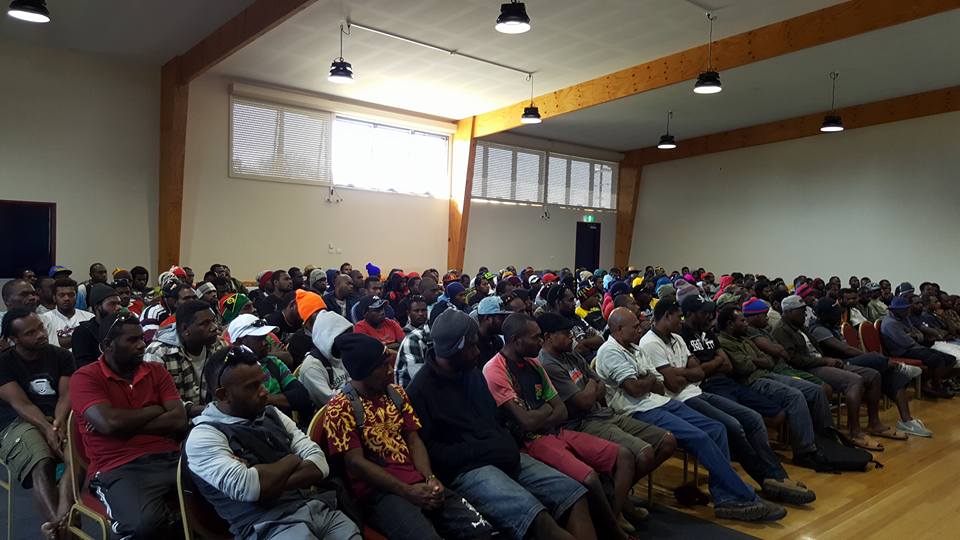Nick McKenzie has done some important work uncovering exploitation of backpackers, but his recent article on the abuse in Queensland in 2014 of Pacific seasonal workers in The Sydney Morning Herald is unbalanced and not deserving the title of exclusive investigation which it is accorded.
Contrary to the backpacker exploitation which McKenzie has unearthed, this is a case that has already gone through the courts. The only investigation the journalist had to do was read the court’s ruling on the web and then talk to one of the workers named therein. It’s hardly an exclusive either; the case was reported on more than a year ago; the new development is that the court ruling was just handed down – and that’s on the public record.
The exploitation in the case McKenzie writes about is certainly appalling and worthy of coverage. It is a sobering reminder that horticulture appears to be the Wild West of Australia’s labour markets. But also worthy of emphasis is the fact that this was a case in which ultimately the system worked.
You won’t find out from the Fairfax article, but you will from the court documentation, that the instigation of the initial compliant came from the Vanuatu government and the employees being exploited. This complaint was swiftly dealt with by the Department of Employment, who referred the case to the Fair Work Ombudsman, who contacted the abusive employer, Mr Bani, in the same month as the abuse was initially reported. Far from refuting it, this sequence of events is entirely consistent with the claim that McKenzie thinks his article calls into question, namely that the Seasonal Worker Program (SWP) is “the nation’s most exploitation proof”. It is. In no other migration scheme can workers complain to their own government and have those complaints transmitted to the Australian government, and acted on.
The article’s comparison of the SWP to blackbirding, a practice of slavery operating in Australia in the 19th century, is ridiculous. Slaves have nowhere to turn. Vanuatu has just taken over from Tonga as the main sending country for the Seasonal Worker Program. And most workers return from year to year. In general, the scheme works well for both employer and employees.
Nor should any inference be drawn from the McKenzie article that the SWP is not already sufficiently regulated. In designing any government scheme, the aim should not be that no abuse occurs. It would be utopian not to assume that some people will break the law and need to be investigated and punished. Rather, the aim should be to get the balance right between the costs of compliance and the risk of exploitation, and to have investigation and enforcement mechanisms in place when things go wrong. We will always need prisons and fines.
That said, cases that go wrong often suggest means of improvement, and this is where the article is helpful. If the government wants to reduce exploitation, it should not further regulate the already tightly controlled and very small SWP. It should focus on the main game: the tens of thousands of unregulated backpackers and illegal migrant workers, who have no government to represent them in Australia. It is interesting that the abuse reported on was committed by a labour hire company. In 2016, a Queensland parliamentary inquiry failed to take a strong stance on regulating the labour hire industry. By contrast, Victoria, after a robust independent inquiry, has decided that all labour hire companies should be licensed (as they are in several other countries). This case should prompt the Palaszczuk government to reconsider its position.
I’m pretty sure that as soon as these allegations were reported back in 2014, Mr Bani was removed from the Seasonal Worker Program Approved Employers list. However, there was nothing to stop him continuing to hire backpackers, because no license is needed to do so. Indeed, McKenzie’s article suggests that Bani is still active in labour hire. Introducing a licensing system for labour hire companies would not prevent abuse but would allow immediate action to stop it once it occurs. Given the political difficulties involved, COAG should develop a national approach.
Far from being part of the problem, the Seasonal Worker Program is part of the solution to the prevalence of labour exploitation in Australia’s horticultural sector. Backpackers and illegal workers are currently outcompeting Pacific islanders on Australia’s farms, precisely because it is more difficult to get away with mistreating the latter group. If the horticultural labour market is cleaned up, one result will be thousands more Pacific islanders coming to Australia.
Stephen Howes is Director of the Development Policy Centre.



Leave a Comment